Berkshire Hathaway 2014 Annual Report Download - page 45
Download and view the complete annual report
Please find page 45 of the 2014 Berkshire Hathaway annual report below. You can navigate through the pages in the report by either clicking on the pages listed below, or by using the keyword search tool below to find specific information within the annual report.-
 1
1 -
 2
2 -
 3
3 -
 4
4 -
 5
5 -
 6
6 -
 7
7 -
 8
8 -
 9
9 -
 10
10 -
 11
11 -
 12
12 -
 13
13 -
 14
14 -
 15
15 -
 16
16 -
 17
17 -
 18
18 -
 19
19 -
 20
20 -
 21
21 -
 22
22 -
 23
23 -
 24
24 -
 25
25 -
 26
26 -
 27
27 -
 28
28 -
 29
29 -
 30
30 -
 31
31 -
 32
32 -
 33
33 -
 34
34 -
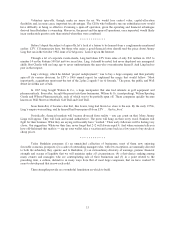 35
35 -
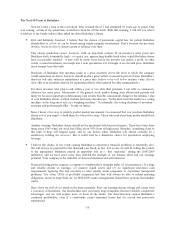 36
36 -
 37
37 -
 38
38 -
 39
39 -
 40
40 -
 41
41 -
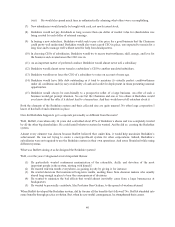 42
42 -
 43
43 -
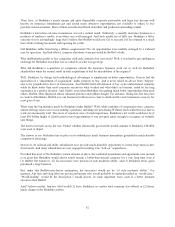 44
44 -
 45
45 -
 46
46 -
 47
47 -
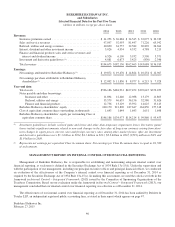 48
48 -
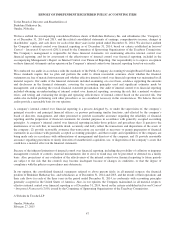 49
49 -
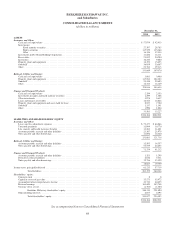 50
50 -
 51
51 -
 52
52 -
 53
53 -
 54
54 -
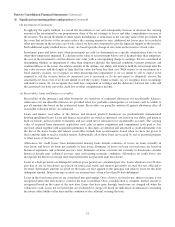 55
55 -
 56
56 -
 57
57 -
 58
58 -
 59
59 -
 60
60 -
 61
61 -
 62
62 -
 63
63 -
 64
64 -
 65
65 -
 66
66 -
 67
67 -
 68
68 -
 69
69 -
 70
70 -
 71
71 -
 72
72 -
 73
73 -
 74
74 -
 75
75 -
 76
76 -
 77
77 -
 78
78 -
 79
79 -
 80
80 -
 81
81 -
 82
82 -
 83
83 -
 84
84 -
 85
85 -
 86
86 -
 87
87 -
 88
88 -
 89
89 -
 90
90 -
 91
91 -
 92
92 -
 93
93 -
 94
94 -
 95
95 -
 96
96 -
 97
97 -
 98
98 -
 99
99 -
 100
100 -
 101
101 -
 102
102 -
 103
103 -
 104
104 -
 105
105 -
 106
106 -
 107
107 -
 108
108 -
 109
109 -
 110
110 -
 111
111 -
 112
112 -
 113
113 -
 114
114 -
 115
115 -
 116
116 -
 117
117 -
 118
118 -
 119
119 -
 120
120 -
 121
121 -
 122
122 -
 123
123 -
 124
124 -
 125
125 -
 126
126 -
 127
127 -
 128
128 -
 129
129 -
 130
130 -
 131
131 -
 132
132 -
 133
133 -
 134
134 -
 135
135 -
 136
136 -
 137
137 -
 138
138 -
 139
139 -
 140
140 -
 141
141 -
 142
142 -
 143
143 -
 144
144 -
 145
145 -
 146
146 -
 147
147 -
 148
148
 |
 |
Nor do I think that desirable purchases of new businesses would end with Buffett’s departure. With Berkshire now
so large and the age of activism upon us, I think some desirable acquisition opportunities will come and that
Berkshire’s $60 billion in cash will constructively decrease.
My final task was to consider whether Berkshire’s great results over the last 50 years have implications that may
prove useful elsewhere.
The answer is plainly yes. In its early Buffett years, Berkshire had a big task ahead: turning a tiny stash into a large
and useful company. And it solved that problem by avoiding bureaucracy and relying much on one thoughtful leader
for a long, long time as he kept improving and brought in more people like himself.
Compare this to a typical big-corporation system with much bureaucracy at headquarters and a long succession of
CEOs who come in at about age 59, pause little thereafter for quiet thought, and are soon forced out by a fixed
retirement age.
I believe that versions of the Berkshire system should be tried more often elsewhere and that the worst attributes of
bureaucracy should much more often be treated like the cancers they so much resemble. A good example of
bureaucracy fixing was created by George Marshall when he helped win World War II by getting from Congress the
right to ignore seniority in choosing generals.
Sincerely,
Charles T. Munger
43
